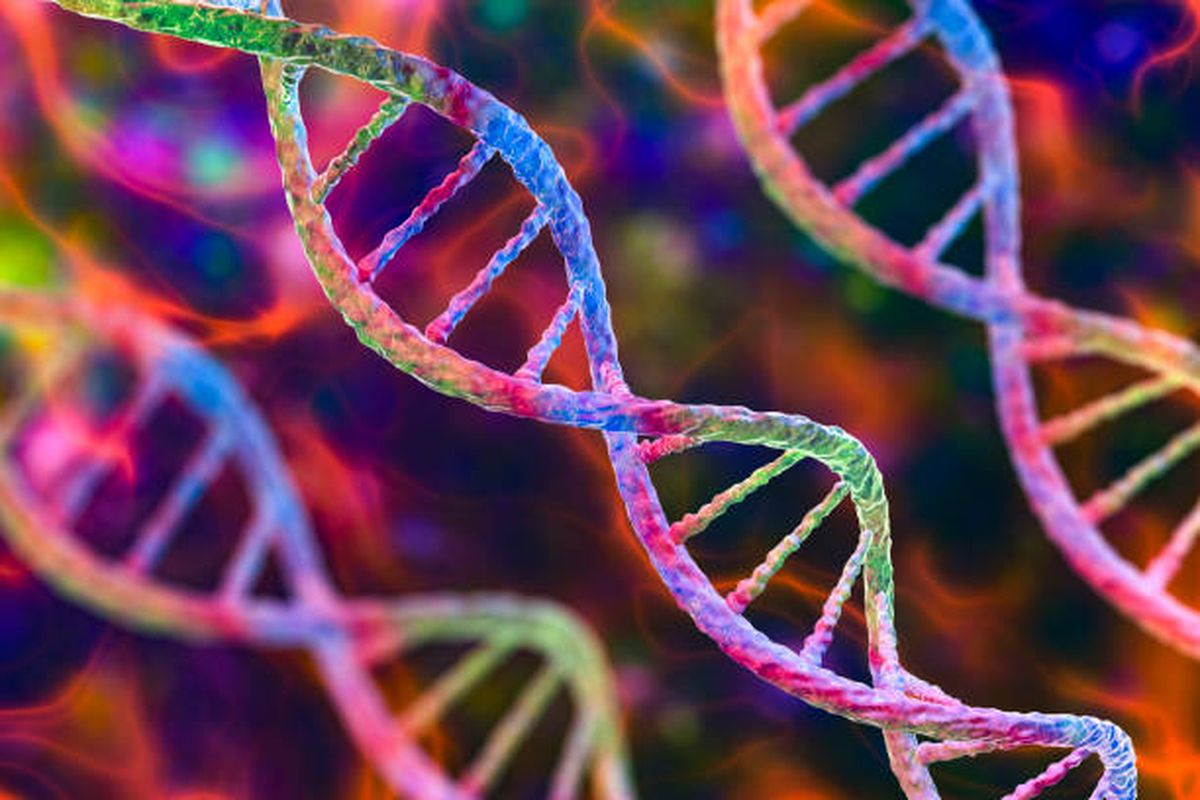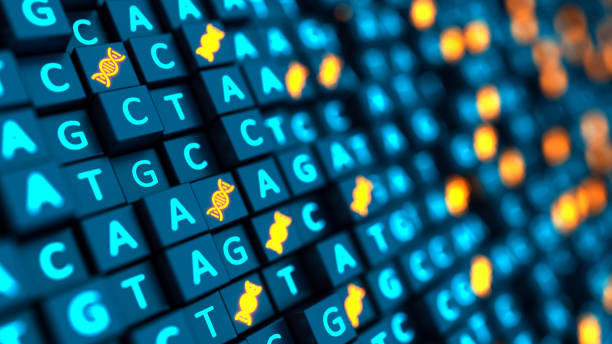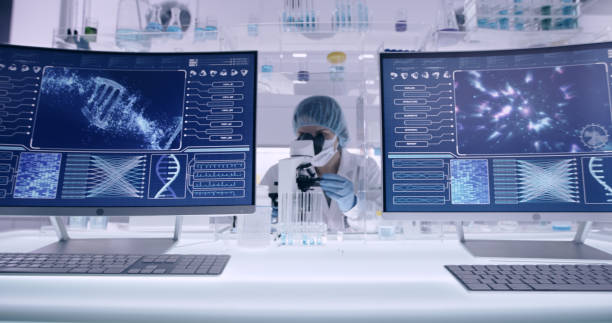GeneNFTs might be considered to be a game-changer for genomic testing. However, user education is still required to ensure that this model advances effectively.
It is predicted that nonfungible tokens (NFTs) will have a massive impact on society. In that context, it should not come as a surprise that the trillion-dollar industry has started to explore NFTs to advance medicine.
Furthermore, it is critical to note that blockchain technology can play a majorly integral role within the healthcare industry. That was highlighted recently in a report from the European Union Blockchain Observatory. The organization mostly documents how blockchain applications can resolve challenges that face the healthcare space.
For instance, the paper notes that patient engagement and transparency of how sensitive data is stored, together with the effective distribution of knowledge and data remains quite challenging for the healthcare industry.
But, as the blockchain sector continues to advance constantly, tokenization in the form of nonfungible tokens (NFTs) may serve as a solution for most of the challenges affecting the healthcare sector currently.
Related: Practical NFT Use Cases Beyond Digital Artworks
GeneNFTs To Transform Precision Medicine
For anyone unfamiliar with this term, the Precision Medicine Initiative refers to precision medicine as:
“An emerging approach for disease treatment and prevention that takes into account individual variability in genes, environment, and lifestyle for each person.”
Specially speaking, Tuan Cao, Genetica’s CEO and co-founder, insists that tokenizing genetic profiles can enable patients to maintain data ownership and transparency into their private insights while enjoying most benefits that are not normally linked with traditional genomic testing. He highlighted:
For instance, Genetica, a genomic firm serving the Asia Pacific region, recently joined Oasis Labs, a Web3 data management company to help in tokenizing genomic profiles. Cao said that the primary goal behind the partnership is to advance precision medicine by providing patients with data ownership and rights via GeneNFTs.
“This may be one of the most important NFT applications in the world. Our genetic profile is unique and it should be represented by an NFT. GeneNFTs are the tokenized ownership of one’s genetic data. This enables each of us to truly take control and benefit from our data contribution.”
Based on the explanation by Cao, traditional genetic testing firms like 23andMe, for instance, mainly rely on intermediaries to collect patient information and data for research purposes only. In that context, users have to trust centralized entities to safely store all sensitive health information. Furthermore, users do not get any incentives for deciding to share their data with third parties.
But, tokenizing genomic data in the form of a nonfungible token can transform this model entirely. Cao highlighted that Genetica’s partnership with Oasis Labs lets users conduct a traditional genetic test and get a GeneNFT later representing true ownership of their genetic profile.
Importantly, Cao said that Gene NFTs holders act as gatekeepers of their data. Thus, they always have to grant access to third-party entities that want to use the information. He added:
“A user holding a GeneNFT also holds the private key for that data. If a pharmaceutical company for instance wants to run a genetic study, it must send a proposal for access. A user can then sign the proposal to approve the access.”
Cao also explained that there are medical and financial benefits linked with GeneNFTs, he said:
“Financial benefits involve revenue sharing, so users will get paid when third parties request to access their data. We can issue these payments automatically due to blockchain technology and smart contracts.”
Notably, Cao thinks that the medical benefits acquired from GeneNFTs exceed the financial incentives. He added:
“When users participate in a genetic study, a smart contract is leveraged to ensure patients will receive treatment first if they contribute to a clinical trial. Precision medicine profiles for treatments of certain diseases based on genetic variants, which is how this model is ultimately advancing precision medicine.”
The founder of Oasis Labs, Dawn Song, told reporters that GeneNFTs can be seen as data-backed nonfungible tokens. In many cases, people think that NFTs are mere JPEG images. However, data-backed NFTs integrate blockchain with privacy computing to use various pieces of data while managing to comply with data sharing and usage policies like the EU’s GDPR.
Related: What is GDPR? Everything you need to know about the new general data protection regulations
Song confirmed that Genetica plans to use Oasis Network’s Parcel, a privacy-preserving data sharing and governance application programming interface (API), to tokenize various genomic profiles. She added:
“Given that genomes are the quintessential identity of individuals, it is critical that any platform that stores and processes genomic data provide confidentiality to the data at rest, in motion, and, more importantly, in use. Parcel provides these capabilities via the use of encryption of data at rest and in motion and trusted execution environments to maintain data confidentiality in use.”
Taking into context the size of genomic data and the complexity of the computations that they power, Song also said that Parcel’s use of off-chain storage and off-chain secure execution environments make it possible to store a lot of genomic data and run different analyses on them. She commented:
“Parcel also supports a policy framework that is used by data owners, or individuals as owners of their genomes, to specify who can use their data and for what purposes.”
Up to today, Oasis Lab’s technology has supported the tokenization of 30,000 genomic profiles, and the latest partnership with Genetica will increase that number to around 100,000.
Healthcare Sector Already Using Tokenization
While nonfungible tokens are still a nascent concept for the healthcare industry, it is crucial to note that tokenization is a different sense from NFT. But, NFTs are becoming more common as patient privacy becomes crucial.
For instance, Seqster, a healthcare technology firm launched in 2016, offers tokenized data to address privacy needs across the general healthcare sector. CEO and founder of Seqster, Ardy Arianpour, said that the firm tokenizes different types of patient data, including genomic DNA data for the healthcare service providers.
The Seqster platform is designed to tokenize a patient’s information fields including their date of birth, name, address, phone, and email into a set of distinct tokens that a firm can then analyze to identify a patient within its network.
“Tokenization allows each organization, provider, payer, and researcher to have their internal unique ID representing a real patient without revealing to the other party in a transaction who the patient is.”
Based on the explanation by Arianpour, tokenization in this context is important to avoid exposing personal health data and information about a patient without obtaining their explicit consent. Exposing such information would be a major violation of the Health Insurance Portability and Accountability Act (HIPAA).
On the flip side, Arianpour said that while tokenization is highly beneficial, it is not always essential. He explained that in various environments, like the clinical trials, the sponsoring organization manages to generate a ‘subject_id’ that precisely identifies the patient.
“That ID can be shared within their organization or with partners without revealing the patient’s actual identity. This is a more widely used standard among the clinical trial space and also meets FDA compliance.”
Another healthcare firm, Datavant, has been leveraging tokenization to guarantee patient information is private but accessible. Recently, McKinsey & Company featured an exclusive interview with Pete McCabe, CEO of Datavant, where he explained how tokenization is used. According to the interview, Datavant defines tokenization as:
“Cutting-edge, patent-pending de-identification technology that replaces private patient information with an encrypted token that can’t be reverse-engineered to reveal the original information.”
McCabe said that tokenization in this context can help in creating patient-specific tokens in any data set. It means that two different data sets can be integrated using the patient tokens to help match the corresponding records without having to share any of the underlying patient information and data.
Education Is Important
While it is evident that NFTs and GeneNFTs are getting applied to healthcare, several challenges may compromise their adoption. For example, co-founder and CEO of Embleema, Robert Chu, highlighted in the EU Blockchain Observatory’s healthcare report that all information has to be de-identified in the US without re-identifying patient information to comply with HIPAA. Embleema is a data platform for personalized medicine.
Nonetheless, Chu stated that this becomes challenging when just a few patients participate in the dataset:
“In this example, it may be impossible for any method to completely de-identify the data. Should we then forbid any research for rare diseases, even if patients agree to share identified data? In our opinion, it should not. This example demonstrates well that there needs to be a balance between privacy and innovation.”
To Chu’s point, Cao said that people that use GeneNFTs need to participate in a clinical study and get treatment first in case they contribute their data. This can also mean the data would be readily identifiable, which might result in regulatory worries in particular nations like the United States.
Related: How to Find NFTs Before They are Released
Furthermore, Cao said that 90% of Genetica users are non-crypto currency natives. Hence, Cao thinks that the largest challenge that faces the adoption of GeneNFTs is education. He stated:
“We have to put in extra work to educate almost all of our users on the benefits of GeneNFTs, explaining how these provide data ownership, accessibility, and utilization.”
While echoing Cao, Song said that user education is the most significant hurdle for the adoption of this technology.
“Many users understand what an artwork NFT is, but they are not familiar with data-backed NFTs.”
Though this is the case currently, Song thinks that data-backed NFTs can transform the general society as the global economy becomes data-driven.
“This approach could grow fast, but we first need to get users to understand this model better. Compared to a few years ago, user awareness has fortunately been much higher in regards to emerging data protection methods.”











